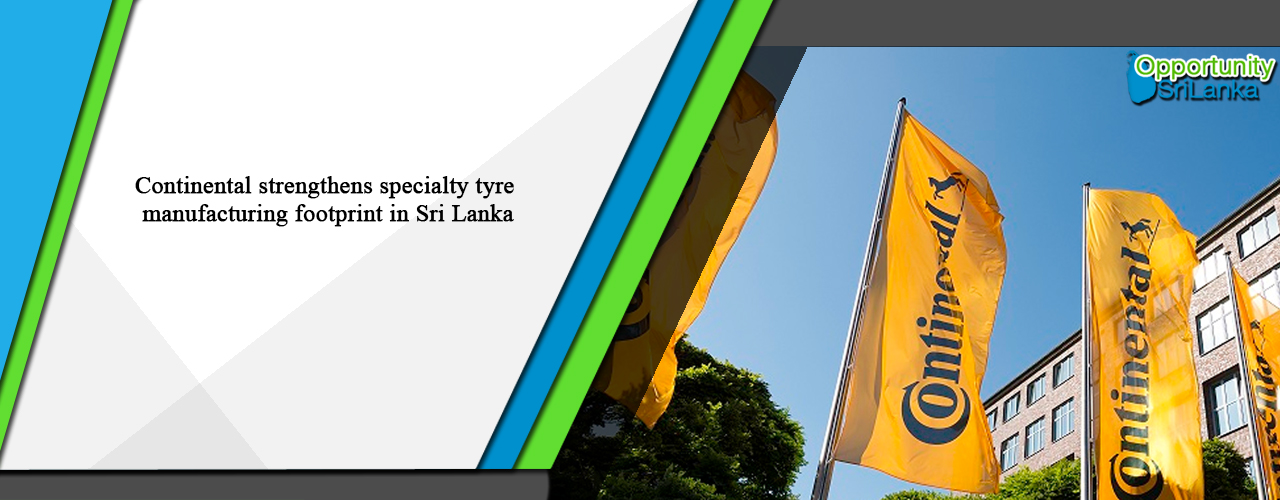Continental strengthens specialty tyre manufacturing footprint in Sri Lanka
Daily FT: Continental is expanding the global manufacturing footprint of its specialty tires business area in Sri Lanka.
By further enhancing local pre-production capacities, it’s Kalatura plant in the future may produce material handling self-sufficiently. This ensures an optimised manufacturing process and limits cross-country dependencies in the logistic supply chain.
Continental will be investing around 13 million euros over the next three years, creating around 200 additional jobs. Customers will benefit from better product availability due to the optimised supply chain.
Business Field Material Handling Head Klaus Framenau said, “Our Kalutara plant is an integral part of our global production network. The most recent investment decision is a testament to that. At Kalutara we manufacture tailor-made specialty tyre products for our customers worldwide.”
“Continental’s material handling business field is looking to further expand its share of the growth markets worldwide. We continue to systematically grow our specialty tires business, as laid out in our Vision 2030 strategy program,” he added.
Since 2009, the Kalutara plant has produced industrial solid tires for forklifts and other material handling vehicles. The plant manufactures press-on-band tires and super elastic tires with a strong focus on serving American, Asian and selected European markets. With its specialty tire brands Continental, General Tire and Barum that cover a wide range of applications, Continental serves the many different requirements of its customers worldwide.
Continental’s specialty tires business area develops, produces and markets a great variety of different tire applications. From agricultural, earth-moving and port vehicle tires to material handling, bicycle, motorcycle and racing tires. It also offers tailor made digital tire solutions that enhance its customer’s efficiency, helping to sustainably reduce their operational costs. Continental is continuously working to advance innovative technologies and sustainable products and services along the entire tire value chain, from the procurement of sustainable materials to the recycling of end-of-life tires.
OSL take:
Sri Lanka’s manufacturing industry has shown a steady growth through the years, even amidst challenging economic conditions faced by the country. The overall growth in economic activities in the country has resulted in the increase in demand for goods and commodities in the local market. Also, the promotion of local products in the export market have further expanded the manufacturing industry. Therefore, there has been an overall expansion in the country’s manufacturing industry. The many trade agreements as well as trade concessions enjoyed by Sri Lanka with others and the growing demand in the international and local markets have created new business/investment opportunities in the manufacturing industry. With the government of Sri Lanka providing incentive schemes for businesses/investors interested in investing in the country’s manufacturing industry, there’s a growing business potential in Sri Lanka’s manufacturing industry. Foreign businesses/investors could therefore explore the expanding business/investment opportunities in the manufacturing industry. Foreign businesses could also look at forming partnerships or joint ventures with local businesses engaged in the manufacturing industry with the aim of further expansion.
| Article Code : | VBS/AT/20240215/Z_5 |

